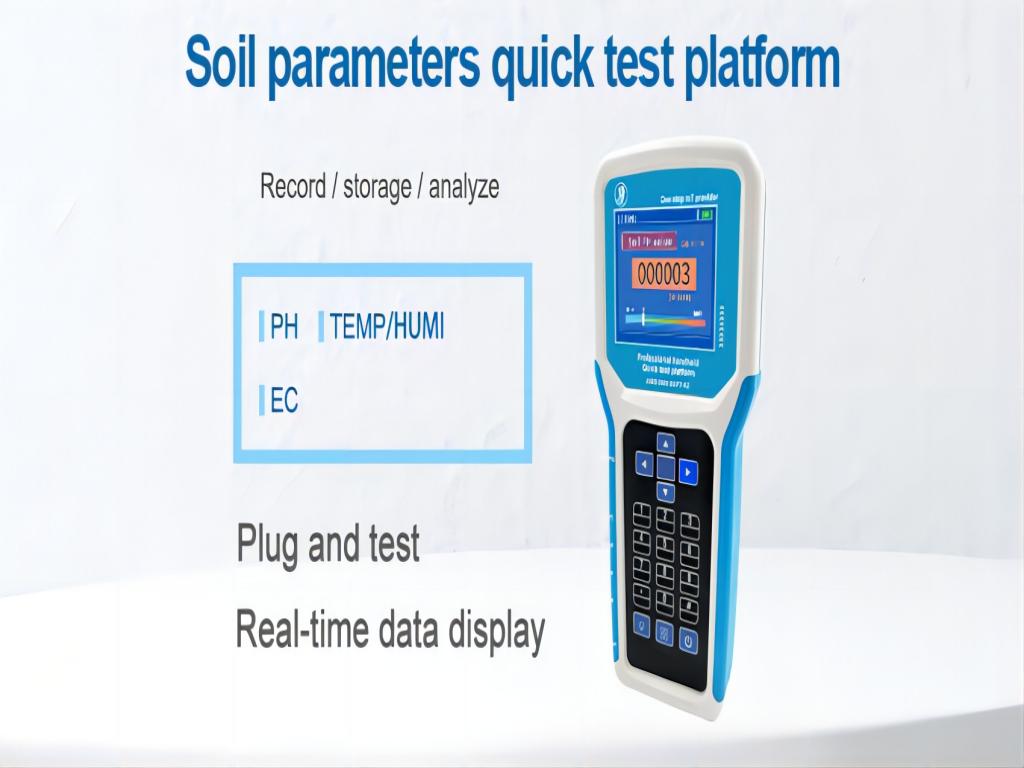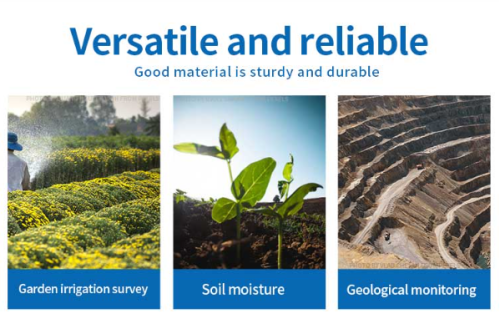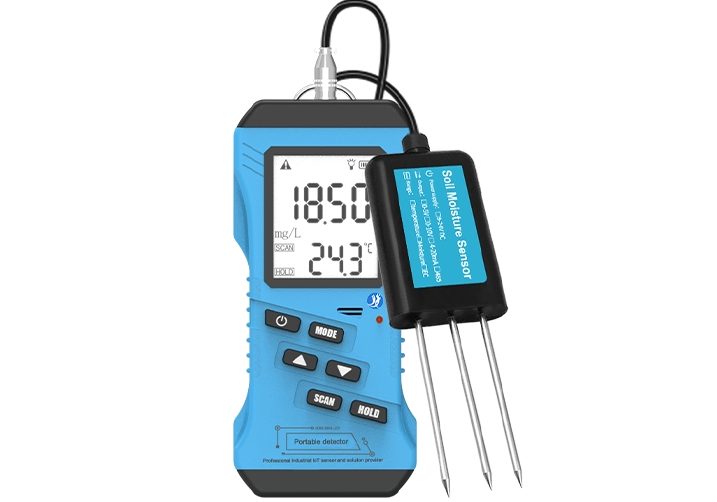Introduce WiFi soil moisture sensor
WiFi soil moisture sensor enable farmers to make informed decisions about irrigated crop management by providing real-time data on soil moisture. Thus, revolutionizing modern agriculture. This paper explores the importance of WiFi soil moisture sensors in agriculture, their impact on water conservation, crop yield, and environmental sustainability.

WiFi soil moisture sensor have become as a game-changer in modern agriculture, offering farmers unprecedented insights into soil conditions. By continuously monitoring soil moisture levels and transmitting data wirelessly to a central system, these sensors empower farmers to optimize irrigation schedules, conserve water, and enhance crop productivity. This paper aims to delve into the pivotal role of WiFi soil moisture sensors in modern agriculture, shedding light on their technological advancements, benefits, challenges, and future prospects.
Importance of WiFi Soil Moisture Sensors in Agriculture
Water Conservation
One of the primary benefits of WiFi soil moisture sensors is their contribution to water conservation in agriculture. By providing real-time data on soil moisture content, these sensors enable farmers to implement precise irrigation strategies, avoiding overwatering and minimizing water wastage. This not only conserves a precious natural resource but also reduces the energy and costs associated with unnecessary irrigation.

Precision Agriculture
WiFi soil moisture sensors facilitate precision agriculture by offering detailed insights into soil conditions. Farmers can use this information to tailor their irrigation and fertilization practices to the specific needs of different areas within their fields, leading to optimized crop growth and yield. The ability to monitor soil moisture levels remotely also allows for timely interventions, such as adjusting irrigation schedules or applying targeted treatments to address moisture-related issues.
Environmental Sustainability
By promoting optimal water usage and reducing the environmental impact of agriculture, WiFi soil moisture sensors contribute to overall environmental sustainability. Efficient water management helps to preserve natural ecosystems, minimize soil erosion, and mitigate the pollution of water bodies through runoff. Additionally, by optimizing crop growth and yield, these sensors support sustainable food production to meet the needs of a growing global population.
Technological Advancements in WiFi Soil Moisture Sensors
Wireless Connectivity

The integration of WiFi connectivity in soil moisture sensors enables seamless data transmission to central monitoring systems, providing farmers with instant access to critical information about their fields. This wireless capability allows for remote monitoring and control, empowering farmers to make timely decisions based on real-time data, even from off-site locations.
Data Analytics and Visualization
Modern WiFi soil moisture sensors are equipped with advanced data analytics and visualization tools, allowing farmers to interpret the collected data effectively. By analyzing historical trends and patterns, farmers can gain valuable insights into the long-term behavior of soil moisture levels, leading to more informed decision-making regarding irrigation, crop selection, and land management practices.
Integration with Smart Farming Systems
WiFi soil moisture sensors can be seamlessly integrated into smart farming systems, enabling a holistic approach to farm management. These sensors can communicate with other smart devices, such as weather stations, automated irrigation systems, and crop monitoring tools, to create a comprehensive ecosystem for optimizing agricultural operations.
Future Prospects and Conclusion
The future of WiFi soil moisture sensors in agriculture looks promising, with ongoing advancements in sensor technology, data analytics, and connectivity. As these sensors become more affordable and accessible, their widespread adoption has the potential to revolutionize farming practices, improve resource efficiency, and contribute to sustainable agriculture. Efforts to address the challenges of cost, data security, and maintenance will be crucial in realizing the full potential of WiFi soil moisture sensors in modern agriculture.
